November 15 stands as one of history’s most eventful days, witnessing the rise and fall of empires, groundbreaking discoveries, and moments that shaped our modern world across centuries of human achievement.
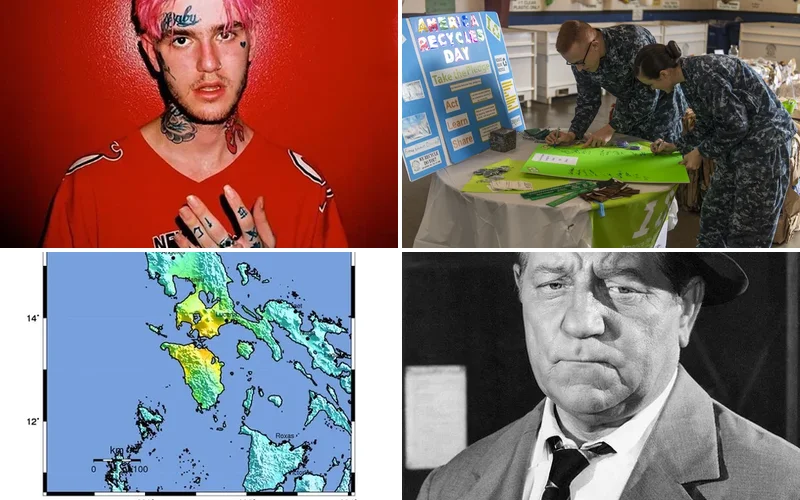
Politics and Government Events on November 15
1917 – Eduskunta Declares Supreme State Power
Finland’s parliament boldly declared itself the supreme governing authority, setting the stage for independence from Russian rule. This pivotal decision challenged centuries of foreign domination over Finnish territory.
The declaration represented the first concrete step toward full sovereignty. Finnish lawmakers demonstrated remarkable courage by defying the Russian provisional government during this turbulent revolutionary period.
1920 – League of Nations First Assembly
The world’s first international peacekeeping organization convened its inaugural assembly in Geneva, Switzerland. Representatives from dozens of nations gathered to establish protocols for preventing future global conflicts.
This historic gathering marked humanity’s first serious attempt at organized international cooperation. The assembly’s proceedings would influence diplomatic relations for decades to come.
1990 – Bulgaria Ends Communist Rule
The Communist People’s Republic of Bulgaria officially dissolved, marking the end of decades of Soviet-aligned governance. Pro-democracy leaders established a new republican government system.
Citizens celebrated throughout Sofia as democratic reforms swept across Eastern Europe. Bulgaria’s peaceful transition inspired similar movements in neighboring communist states.
2002 – Hu Jintao Becomes CCP General Secretary
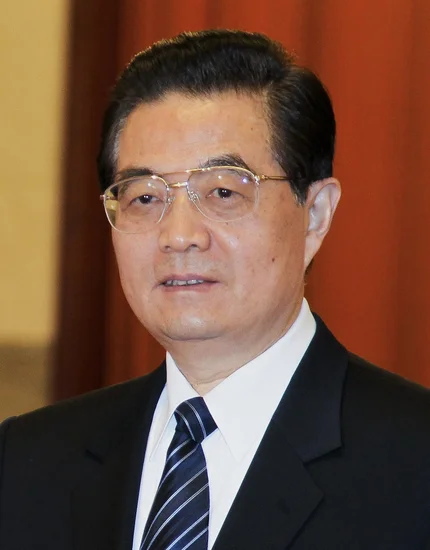
China’s Communist Party selected Hu Jintao as General Secretary, ushering in a new era of Chinese leadership. The party simultaneously inaugurated a nine-member Politburo Standing Committee.
This leadership transition represented China’s most significant political change in over a decade. Hu’s appointment signaled potential shifts in both domestic and international policies.
2012 – Xi Jinping Assumes CCP Leadership
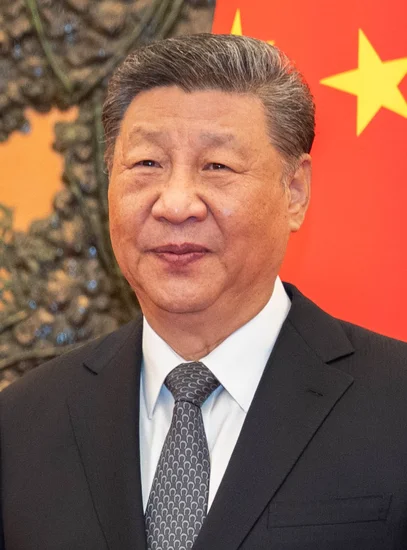
Xi Jinping ascended to General Secretary of China’s Communist Party, consolidating power within a streamlined seven-member Politburo Standing Committee. The leadership change marked China’s most important political transition in years.
Xi’s appointment represented the fifth generation of Chinese Communist leadership. His rise to power would fundamentally reshape China’s role in global affairs.
1976 – Parti Québécois Victory

René Lévesque led the Parti Québécois to a stunning electoral victory in Quebec, becoming the province’s first openly separatist government. The victory sent shockwaves throughout Canadian political circles.
This historic win marked the first time a Quebec independence party gained control of the provincial government. Lévesque’s triumph fundamentally altered the relationship between Quebec and federal Canada.
1983 – Northern Cyprus Declaration
The Turkish Republic of Northern Cyprus unilaterally declared independence from the internationally recognized Republic of Cyprus. Turkey became the sole nation to recognize the new state’s sovereignty.
This controversial declaration deepened the existing division of Cyprus between Turkish and Greek communities. The international community rejected the independence claim as illegitimate.
1922 – Free City of Danzig Established
The League of Nations formally established the Free City of Danzig as an independent city-state under international protection. This unique arrangement attempted to balance German and Polish territorial claims.
The free city’s creation represented a compromise solution to one of Europe’s most contentious territorial disputes. Danzig’s special status would remain a source of international tension for decades.
Military and Naval History on November 15
1942 – Battle of Guadalcanal Ends
Allied forces achieved a decisive victory in the Battle of Guadalcanal, marking a crucial turning point in the Pacific Theater. Japanese naval forces retreated after suffering devastating losses.
The victory secured Allied control of the Solomon Islands and demonstrated American naval superiority. This triumph shifted the momentum of the Pacific War permanently in favor of the Allies.
1969 – Soviet-American Submarine Collision
The Soviet nuclear submarine K-19 collided with USS Gato in the frigid waters of the Barents Sea. Both vessels sustained damage during this dangerous Cold War maritime incident.
The collision highlighted the constant tensions between Soviet and American naval forces. Neither nation publicly acknowledged the incident for several years following the crash.
1969 – Vietnam War Moratorium
Between 250,000 and 500,000 protesters gathered in Washington, D.C., for the largest anti-war demonstration in American history. The peaceful “March Against Death” included symbolic ceremonies honoring fallen soldiers.
The massive protest demonstrated growing public opposition to the Vietnam War. The demonstration significantly influenced congressional debates about military escalation in Southeast Asia.
1967 – X-15 Program Fatal Accident
Air Force test pilot Michael J. Adams lost control of his X-15 aircraft over the Mojave Desert, resulting in the program’s only fatality. The experimental aircraft disintegrated during its 191st flight.
Adams’ death marked the end of the ambitious X-15 hypersonic research program. The program had previously achieved remarkable successes in advancing aerospace technology and pilot training.
1988 – Palestine Independence Declaration
The Palestinian National Council proclaimed an independent State of Palestine during a historic session in Algiers. The declaration represented the Palestinian people’s formal assertion of national sovereignty.
This symbolic proclamation intensified diplomatic efforts to resolve the Israeli-Palestinian conflict. The declaration gained recognition from numerous countries despite lacking territorial control.
Science and Discovery Milestones on November 15
1971 – Intel 4004 Microprocessor Launch
Intel Corporation released the world’s first commercial single-chip microprocessor, the revolutionary 4004. This groundbreaking invention would transform computing and electronics industries forever.
The 4004 contained 2,300 transistors and operated at 740 kilohertz. This tiny chip launched the personal computer revolution and established Intel as a technology giant.
1988 – Buran Shuttle Flight
The Soviet Union’s unmanned space shuttle Buran completed its maiden and only spaceflight, orbiting Earth twice before landing automatically. This achievement demonstrated Soviet space technology capabilities.
Buran’s successful mission proved that the Soviet space program remained competitive with NASA’s shuttle program. The flight represented the culmination of years of intensive Soviet aerospace development.
1966 – Gemini 12 Mission Completion

NASA’s Gemini 12 spacecraft splashed down safely in the Atlantic Ocean, completing the program’s final mission. The successful recovery marked the end of America’s second human spaceflight program.
Gemini 12’s completion paved the way for the Apollo lunar missions. The program had successfully demonstrated critical spaceflight techniques including orbital rendezvous and extravehicular activity.
1990 – Space Shuttle Atlantis Launch

Space Shuttle Atlantis launched on STS-38, carrying classified military payloads for the Department of Defense. The mission represented continued cooperation between NASA and military agencies.
The classified nature of the mission highlighted the shuttle program’s dual civilian and military roles. Atlantis successfully deployed sensitive defense satellites during its orbital mission.
1965 – Land Speed Record Set

Craig Breedlove achieved a new land speed record of 600.601 mph in his jet-powered car Spirit of America. The record-breaking run took place at Utah’s Bonneville Salt Flats.
Breedlove’s achievement marked the first time a land vehicle exceeded 600 miles per hour. The record demonstrated American engineering prowess in high-speed vehicle design.
Cultural and Arts Events on November 15
1959 – Clutter Family Murders

Four members of the Clutter family were brutally murdered in their Kansas farmhouse by Perry Smith and Richard Hickock. This shocking crime would later inspire Truman Capote’s groundbreaking non-fiction novel.
The murders terrorized the small farming community of Holcomb, Kansas. Capote’s subsequent book “In Cold Blood” revolutionized the true crime genre and established new literary standards.
2006 – Al Jazeera English Launch
Al Jazeera launched its English-language news service, broadcasting to international audiences worldwide. The network aimed to provide Middle Eastern perspectives on global news events.
The launch represented a significant expansion of Arabic media influence into Western markets. Al Jazeera English challenged traditional Western news monopolies with alternative viewpoints.
1955 – Saint Petersburg Metro Opening
The first section of Saint Petersburg’s subway system opened to the public, providing modern transportation for the historic Russian city. The metro system featured elaborate architectural designs typical of Soviet public works.
The opening marked a significant modernization of Saint Petersburg’s infrastructure. The metro’s ornate stations became tourist attractions in their own right.
1988 – Max Havelaar Fairtrade Label
The Netherlands introduced the world’s first Fairtrade certification label, Max Havelaar, revolutionizing ethical consumer commerce. The label guaranteed fair wages for producers in developing countries.
This innovation sparked the global Fairtrade movement that continues expanding today. The label created new market opportunities for disadvantaged farmers and workers worldwide.
Religious and Social Events on November 15
1938 – Nazi Ban on Jewish Students
Nazi Germany officially banned Jewish children from attending public schools following the Kristallnacht pogrom. This decree represented another step in the systematic persecution of Jewish citizens.
The educational ban isolated Jewish families and destroyed children’s academic futures. This policy preceded even more severe restrictions and deportations that would follow.
1943 – Himmler’s Romani Deportation Order
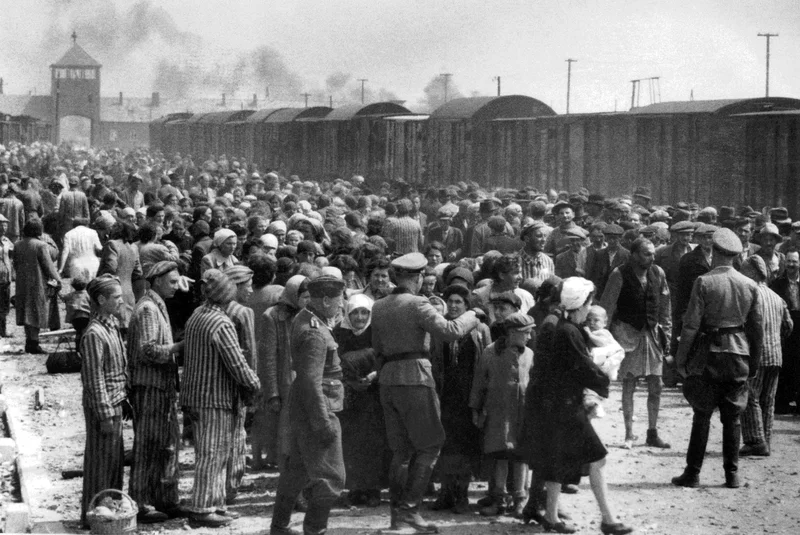
SS leader Heinrich Himmler issued orders placing Romani people “on the same level as Jews” for concentration camp deportation. This directive expanded the Holocaust’s genocidal scope.
The order condemned thousands of Romani families to imprisonment and death. This systematic persecution of Roma communities represented one of history’s most overlooked genocides.
1987 – Brașov Workers’ Rebellion
Romanian workers in Brașov staged a courageous uprising against Nicolae Ceaușescu’s oppressive communist regime. The rebellion demonstrated growing popular resistance to authoritarian rule.
Government forces brutally suppressed the workers’ protest using violence and mass arrests. The uprising foreshadowed the larger revolution that would topple Ceaușescu two years later.
1985 – Anglo-Irish Agreement Signed
British Prime Minister Margaret Thatcher and Irish Taoiseach Garret FitzGerald signed the historic Anglo-Irish Agreement at Hillsborough Castle. The accord established new frameworks for Northern Ireland governance.
The agreement granted Ireland consultative roles in Northern Ireland affairs for the first time. This diplomatic breakthrough provided foundations for future peace negotiations.
1928 – Thai First Election
Thailand conducted its first democratic election, marking a significant step toward constitutional monarchy. The election represented the country’s initial experiment with representative government.
This historic vote introduced democratic principles to Thai society after centuries of absolute monarchy. The election established precedents for future democratic developments in Thailand.
Business and Economic Events on November 15
2001 – Microsoft Xbox Launch
Microsoft Corporation launched the Xbox gaming console in North America, entering the competitive video game market. The Xbox challenged Sony’s PlayStation dominance with superior graphics and online capabilities.
The launch marked Microsoft’s ambitious expansion beyond computer software into consumer electronics. Xbox’s success established Microsoft as a major player in the gaming industry.
2000 – Jharkhand Statehood
Jharkhand officially became India’s 28th state, carved from eighteen districts of southern Bihar. The new state gained control over significant mineral resources and industrial facilities.
Jharkhand’s creation addressed long-standing demands for tribal autonomy and regional development. The state’s formation represented successful democratic resolution of ethnic and economic grievances.
1922 – Guayaquil General Strike Massacre
At least 300 people died during violent suppression of a general strike in Guayaquil, Ecuador. Government forces used deadly force against workers demanding better wages and working conditions.
The massacre highlighted severe social tensions between workers and employers in Ecuador. This tragic event became a rallying point for future labor movements throughout Latin America.
1985 – Unabomber University Attack

A research assistant suffered injuries when a package from the Unabomber exploded at the University of Michigan. The attack represented an escalation in Theodore Kaczynski’s anti-technology campaign.
The bombing terrorized academic communities across the United States. Kaczynski’s attacks specifically targeted individuals involved in technological research and development.
Transportation and Infrastructure on November 15
1968 – Cleveland Airport Rapid Transit
The Cleveland Transit System became the first in the Western Hemisphere to provide direct rapid transit service between downtown and a major airport. The innovative connection revolutionized urban transportation planning.
The system eliminated the need for separate airport shuttle services. Cleveland’s pioneering approach influenced rapid transit development in cities worldwide.
1928 – RNLI Lifeboat Tragedy
The Royal National Lifeboat Institution’s Mary Stanford capsized in Rye Harbour, drowning all seventeen crew members. The tragedy shocked Britain’s maritime rescue community.
The loss represented one of the RNLI’s worst disasters in its history. The crew’s sacrifice highlighted the dangerous conditions faced by volunteer lifesavers.
1979 – Unabomber Flight Incident
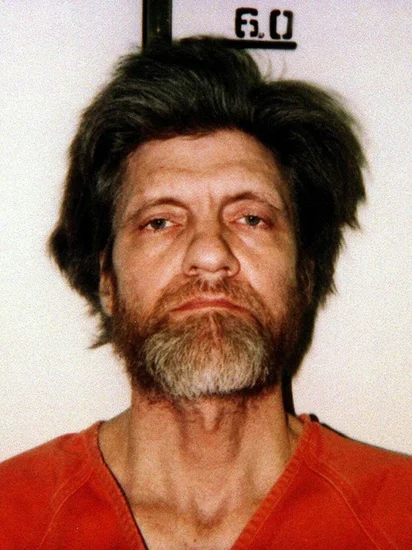
A package from the Unabomber began smoking in the cargo hold of a commercial flight from Chicago to Washington, D.C. The crew made an emergency landing to prevent potential explosion.
The incident demonstrated the Unabomber’s willingness to endanger innocent passengers. This attack prompted increased security measures for airline cargo handling.
1957 – Solent Aircraft Crash
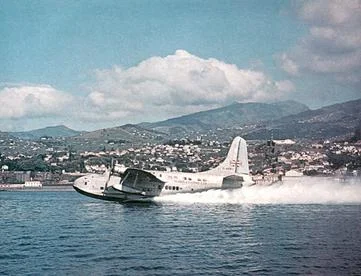
A Short Solent 3 flying boat crashed near Chessell, killing multiple passengers and crew. The accident highlighted safety concerns with large passenger aircraft operations.
The crash prompted investigations into aircraft maintenance and pilot training procedures. This tragedy contributed to improved aviation safety standards.
Sports and Recreation on November 15
2020 – Hamilton’s Seventh Formula 1 Championship

Lewis Hamilton won the Turkish Grand Prix and secured his seventh Formula 1 drivers’ championship, equaling Michael Schumacher’s all-time record. The victory demonstrated Hamilton’s exceptional driving skills in challenging weather conditions.
Hamilton’s achievement cemented his status as one of racing’s greatest champions. The historic win sparked debates about who deserves recognition as Formula 1’s greatest driver.
1994 – Mindoro Earthquake

A magnitude 7.1 earthquake struck the central Philippine island of Mindoro, killing 78 people and injuring 430 others. The powerful tremor triggered a devastating tsunami reaching heights of 8.5 meters.
The disaster highlighted the Philippines’ vulnerability to seismic activity and tsunamis. Emergency response efforts demonstrated both the challenges and successes of disaster management.
1951 – Beloyannis Death Sentence
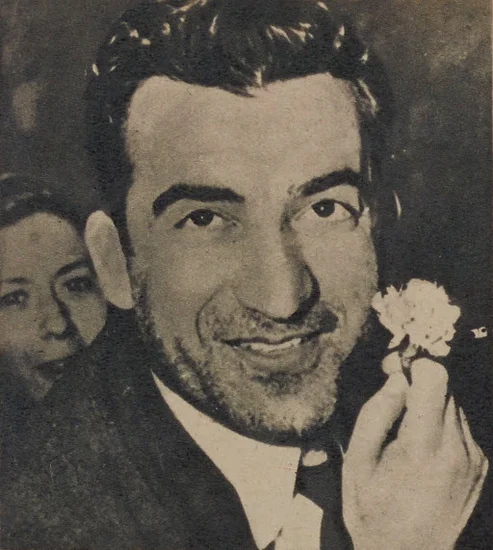
Greek communist leader Nikos Beloyannis received a death sentence along with eleven comrades for attempting to reestablish the Communist Party of Greece. The trial reflected post-war political tensions.
The sentences demonstrated the Greek government’s harsh crackdown on communist activities. Beloyannis became a symbol of resistance against anti-communist persecution.
Notable Births on November 15
1907 – Claus von Stauffenberg Born

German army officer Claus von Stauffenberg entered the world in Bavaria, destined to become one of history’s most famous resistance leaders. His aristocratic family instilled strong moral values from childhood.
Stauffenberg would later lead the July 20, 1944 plot to assassinate Adolf Hitler. His courage in opposing Nazi tyranny made him a symbol of moral resistance.
1924 – Howard Baker Born
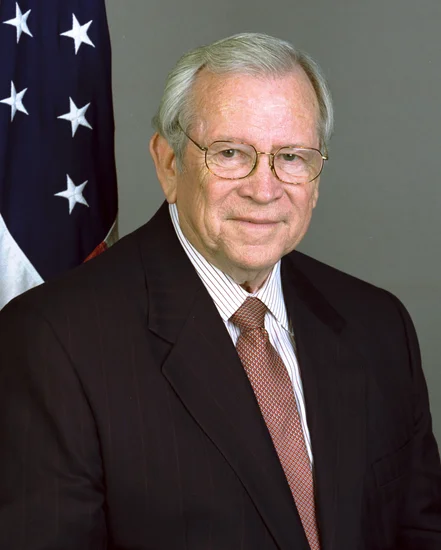
American politician Howard Baker was born in Tennessee, beginning a life of distinguished public service. His father’s political career influenced his early interest in governance.
Baker served as Senate Majority Leader and later as White House Chief of Staff. His reputation for bipartisan cooperation earned him respect across party lines.
1930 – J.G. Ballard Born

British science fiction author J.G. Ballard was born in Shanghai, China, where his father worked as a businessman. His childhood experiences in wartime Shanghai profoundly influenced his literary imagination.
Ballard’s dystopian novels explored themes of technology, psychology, and social collapse. His experimental writing style revolutionized science fiction literature.
1932 – Petula Clark Born

British singer and actress Petula Clark was born in Surrey, England, showing early musical talent. Her clear voice and stage presence captivated audiences from childhood.
Clark achieved international success with hits like “Downtown” and “I Know a Place.” Her career spanned decades and multiple entertainment mediums.
1939 – Yaphet Kotto Born

American actor Yaphet Kotto was born in New York City to immigrant parents. His imposing presence and dramatic intensity made him a sought-after character actor.
Kotto starred in films including “Alien” and “Live and Let Die.” His performances brought depth and authenticity to complex characters.
1954 – Aleksander Kwaśniewski Born
Polish politician Aleksander Kwaśniewski was born in Białogard, beginning a career that would lead to the presidency. His early involvement in student politics shaped his democratic values.
Kwaśniewski served as Poland’s third president during the country’s transition to democracy. His leadership helped integrate Poland into European and Atlantic institutions.
1966 – Shailene Woodley Born

American actress Shailene Woodley was born in San Bernardino, California, showing early interest in performing arts. Her natural talent and environmental activism define her public persona.
Woodley achieved fame in films like “The Fault in Our Stars” and “Big Little Lies.” Her performances demonstrate remarkable emotional range and authenticity.
Notable Deaths on November 15
1908 – Empress Dowager Cixi Dies
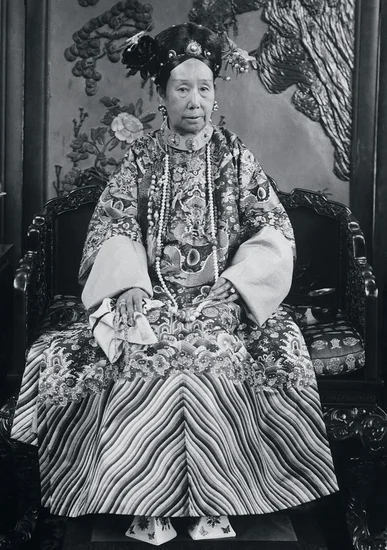
China’s powerful Empress Dowager Cixi died in Beijing, ending nearly half a century of influence over Chinese politics. Her death marked the conclusion of an era of imperial power.
Cixi’s reign witnessed China’s struggles with modernization and foreign intervention. Her conservative policies often conflicted with reformist movements seeking change.
1917 – Émile Durkheim Dies

French sociologist Émile Durkheim died in Paris, leaving behind groundbreaking contributions to social science. His systematic approach to studying society established sociology as an academic discipline.
Durkheim’s research on suicide, religion, and social solidarity revolutionized understanding of human behavior. His methodological innovations continue influencing social scientists today.
1958 – Tyrone Power Dies
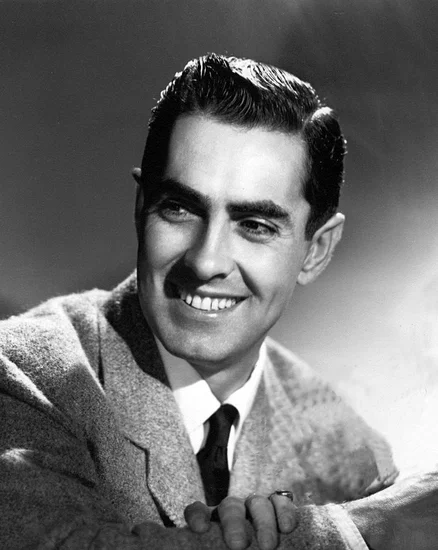
Hollywood leading man Tyrone Power died suddenly of a heart attack while filming in Spain. His unexpected death shocked fans worldwide and ended a brilliant acting career.
Power’s romantic roles made him one of cinema’s most popular stars. His performances in adventure films and romantic dramas defined Hollywood’s golden age.
1976 – Jean Gabin Dies
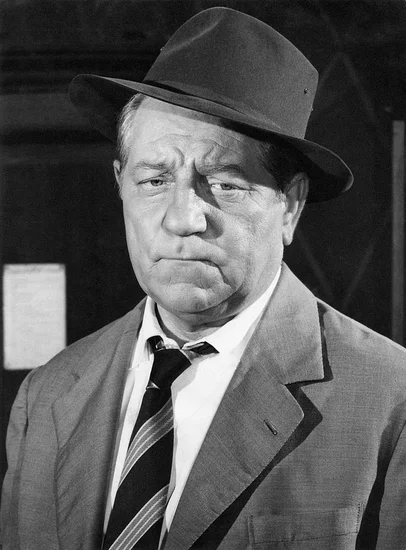
French actor Jean Gabin died in Paris, concluding a career that spanned five decades of cinema. His naturalistic performances defined French film acting.
Gabin’s roles in films like “Grand Illusion” established him as France’s greatest screen actor. His influence on French cinema continues inspiring actors today.
1978 – Margaret Mead Dies

Anthropologist Margaret Mead died in New York City, leaving behind revolutionary contributions to cultural studies. Her research challenged Western assumptions about human behavior and society.
Mead’s work in Samoa and New Guinea transformed understanding of adolescence and gender roles. Her accessible writing brought anthropological insights to general audiences.
1998 – Stokely Carmichael Dies
Civil rights leader Stokely Carmichael died in Guinea, West Africa, after decades of activism for racial justice. His advocacy for Black Power influenced civil rights movements worldwide.
Carmichael’s leadership in the Student Nonviolent Coordinating Committee challenged mainstream civil rights strategies. His international perspective connected American struggles with global liberation movements.
2017 – Lil Peep Dies

American rapper Lil Peep died tragically young in Arizona, shocking the music world. His emotional vulnerability and musical innovation influenced a generation of artists.
Peep’s fusion of hip-hop and rock created new musical possibilities. His openness about mental health struggles resonated with millions of young fans.
Holidays and Observances on November 15
America Recycles Day

The United States observes America Recycles Day to promote environmental awareness and sustainable practices. Communities nationwide organize recycling drives and educational programs.
This national observance encourages citizens to reduce waste and conserve natural resources. Environmental groups use this day to promote recycling initiatives and green technologies.
Shichi-Go-San Festival

Japan celebrates Shichi-Go-San, a traditional festival honoring children aged three, five, and seven. Families visit shrines to pray for their children’s health and future success.
This ancient ceremony marks important milestones in childhood development. Parents dress children in traditional kimono and offer prayers for protection and prosperity.
Republic Proclamation Day
Brazil commemorates the proclamation of the republic, marking the end of imperial rule in 1889. The holiday celebrates Brazil’s transition to republican government and democratic values.
This national observance honors the military officers who established Brazil’s republic. The day features parades and ceremonies celebrating Brazilian independence and sovereignty.
Independence Day Palestine
Palestine observes Independence Day, commemorating the 1988 declaration of statehood by the Palestinian National Council. The day represents Palestinian aspirations for national sovereignty and self-determination.
This observance affirms Palestinian identity and political rights despite ongoing territorial disputes. Communities worldwide hold solidarity events supporting Palestinian independence.
Saint Albert the Great Feast Day
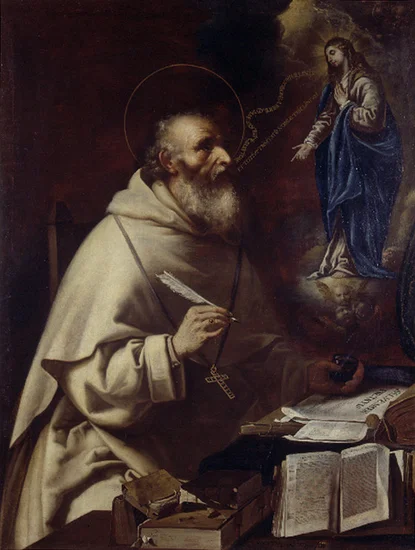
The Catholic Church honors Saint Albert the Great, the patron saint of scientists and philosophers. Albert’s contributions to natural philosophy and theology earned him recognition as a Doctor of the Church.
This feast day celebrates the harmony between faith and reason in medieval scholarship. Albert’s teachings influenced generations of theologians and natural philosophers.
